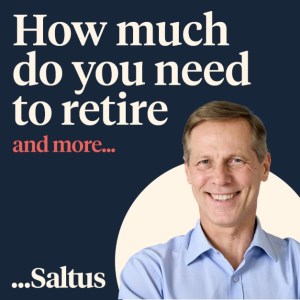
I am not at all sure that most people ever feel secure enough to pack work in. So I found Ali Hussain’s article in the Times , depicting fifty somethings rushing to the door at the prospect of higher tax caps on their pension savings – odd.
Pension reforms are meant to encourage workers to stay working for longer; instead they may allow a wealthy few to retire earlier and shelter more of their estate from the taxman https://t.co/jYGRrAjdug
— Ali Hussain (@AlihussainST) March 26, 2023
The story hinges on this statement
Megan Rimmer from the wealth manager Quilter said:
“The chancellor lifted pension allowances in an effort to discourage early retirement, but for many it could have the opposite impact. Swathes of higher earners using private pensions will be able to reach their income targets more quickly.”
So what “income targets” are these. The ones quoted are the PLSA retirement living standards but I guess that the job of the IFA is to help with triggers that help feel reach a level of income sufficient to let them stop work.
I have two problems with these income targets. Firstly, nobody really knows their need for money in retirement. It’s bound up with matters to do with life, death and morbidity. Secondly, we have no idea about how long the assets we need to sell to pay our bills are going to be worth tomorrow, let alone in 30 years time.
So the idea that people hit an income trigger and rush for the door, doesn’t make sense tof me. I suspect people are very keen on advisers who can offer this level of security.

Reading Ali Hussein’s article , I find him speaking to Nitin Arora, who has an article on this blog, complaining about the limits that have now been relaxed. Like a lot of doctors, Nitin has a clear idea about what he wants and what he does not want to do, is run for the door. Ali tells us
He does not intend to retire earlier, but hopes to take full advantage of the new rules.
What I suspect will happen over the next couple of financial years (the ones we expect this Government to still be in charge), is the mass affluent will recognise this window of opportunity and jump right through it.
But that will not mean they have found answers to my two questions. They will still be unsure about their retirement liabilities and have not much greater security about their money lasting.
We currently have around 800.000 people out of the workforce and over 50. Some of them are physically ill, some mentally ill, some struggle to find the employment they want to do and a few are genuinely retired. We simply don’t know enough about this group to have any more answers about their motivation, than they do about their finances.
There’s plenty arguing that the Budget changes things for the over 50s. But we can be pretty clear , not least from the OBR’s estimate, that all these tax changes don’t amount to many more than 15,000 older workers going back to a job.
That’s less than 2%. That doesn’t look like a stampede to me.

In the March 2021 EFO, which accompanied Rishi’s Sunak’s original announcement of a freeze on the personal allowance and higher rate threshold through to 2025/26, the OBR estimated that by 2025/26 the net effect would be:
Extra revenue of £8bn a year;
3 million more taxpayers than if the personal allowance had been indexed; and
0 million more higher rate taxpayers than if the higher rate threshold had been indexed.
A year later, inflation prompted the OBR to revise its 2025/26 figures to:
Extra revenue of £ 17.5bn a year;
8 million more taxpayers than if the personal allowance had been indexed; and
0 million more higher rate taxpayers than if the higher rate threshold had been indexed.
In the latest EFO, which emerged last week, the OBR has once again revisited its spreadsheets, this time also taking account of the reduction of the additional rate threshold to £125,140 for 2023/24 and last November’s announcement of a further two years’ freeze. It now reckons that, by 2025/26, there will be:
Extra revenue of £24.2bn a year;
2 million more taxpayers than if the personal allowance had been indexed;
0 million more higher rate taxpayers than if the higher rate threshold had been indexed; and
3 million more additional rate taxpayers than if the £150,000 threshold had remained.
Taking the view out to 2027/28 gives the following:
Extra revenue of £26.4bn a year;
2 million more taxpayers than if the personal allowance had been indexed;
1 million more higher rate taxpayers than if the higher rate threshold had been indexed; and
4 million more additional rate taxpayers than if the £150,000 threshold had remained.
The EFO projections also show that, by 2027/28, 20.4% of taxpayers will be paying more than basic rate against 14.5% in 2021/22 (and 10.4% in 2010/11 when additional rate tax was introduced).
Thinking about your title Henry
Should the question be
“At what age can you retire given the income provisions you have set aside from the various income sources including pensions”
Then in which order should you liquidate the asset.